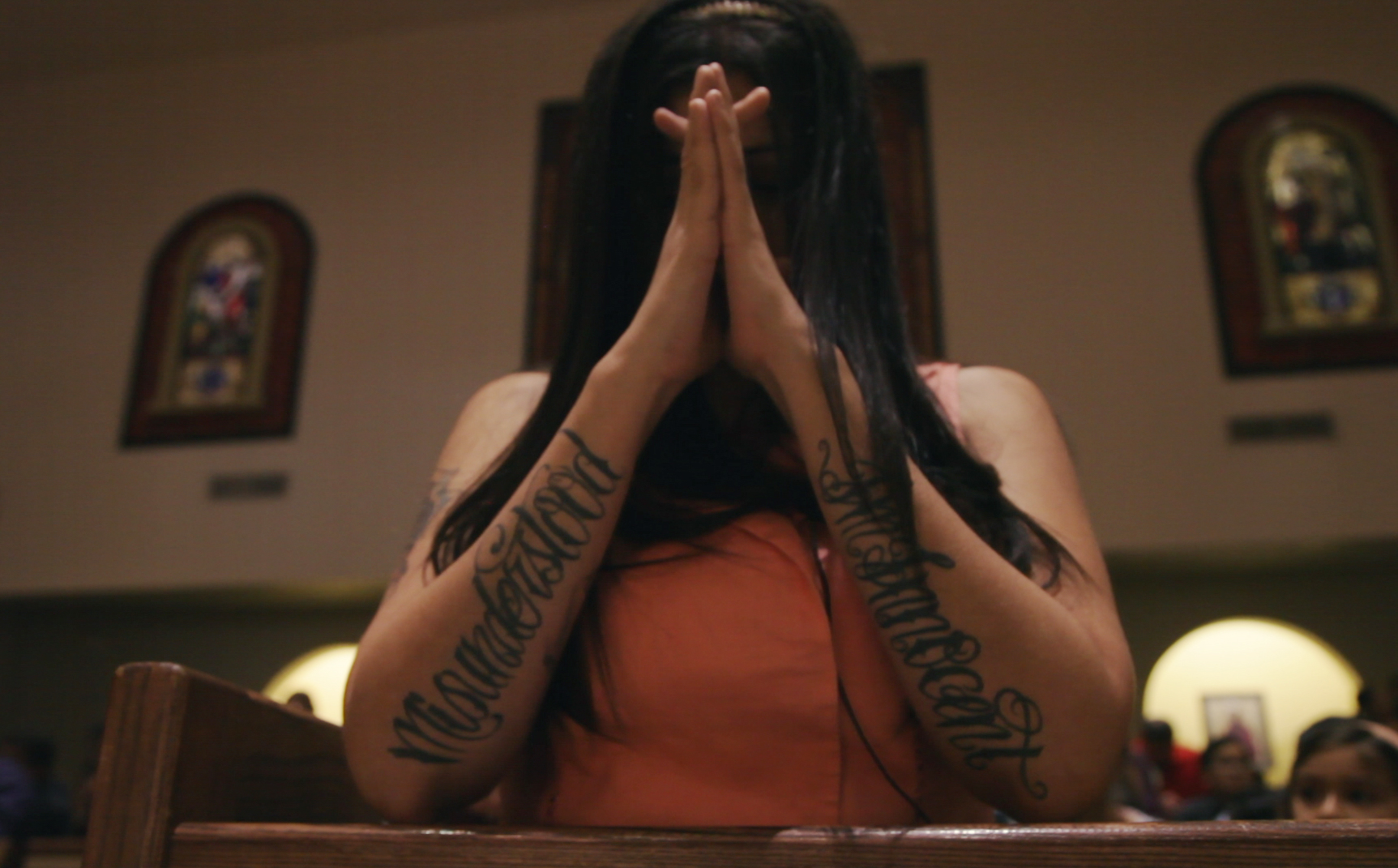
- Film
Docs: “On the Divide” – Choice Without Options?
The poster for the documentary On the Divide has a question: What does choice mean without any options? It’s a question that led female filmmakers Maya Cueva and Leah Galant on a seven-year journey to the town of McAllen, Texas, and the last abortion clinic on the U.S./Mexico border.
“It isn’t just a black and white issue,” says Cueva, who was director and sound recordist on the documentary. “We wanted to show not only how important choice is but how necessary it is for survival.” On the Divide had its world premiere at the 2021 Tribeca Film Festival. It will air during the PBS series POV on April 18.
Leah Galant, who was director and director of photography on the film, adds that “ultimately, we decided to focus on the three Latinx people you meet in the documentary because we felt they highlighted a specific position that is nuanced and something you haven’t seen before. They are people you wouldn’t expect to have a stake in this issue.” She adds, “They blur what a definition of a pro-choice or pro-life person is as we see choice for what it needs to be – just access to resources.”
Whole Woman’s Health abortion clinic is located at the southern tip of Texas, within the Rio Grande Valley. While talking to the HFPA, the filmmakers can’t hide their disappointment that reproductive rights are more under siege these days than almost any period in time. As of February 2022, there were only 24 abortion clinics still operating in Texas, home to over 29 million people. Cueva thinks about the fact that, if the McAllen clinic was forced to close, undocumented people would have to travel over 250 miles to get to the nearest clinic, risking deportation while crossing border checkpoints along the way. “You can’t be like, ‘I’m going to be a non-biased filmmaker’,” Cueva says bluntly. “I don’t believe in objectivity. I don’t think that it’s real. The process was always just about making sure that people had a chance to speak what they think is their truth and feel heard.”
On the Divide focuses on three unlikely faces behind the issue of reproductive health. We see Rey, a 67-year-old widowed Latino man who is the security guard at the clinic. He’s fervent in his own religious beliefs but empathetic of the plight of women arriving at the abortion clinic. He wants to protect them and the women who work there. Mercedes is a tattooed Latina and former gang member in her thirties who became part of the pro-life church movement after receiving assistance from the Christian pregnancy center a few doors away. And Denisse is a young mother of four who works at Whole Women’s Health as an escort, guiding patients into the clinic while protestors stand a few feet away from the entrance.
“We decided to focus on these three people because their stories complement each other and we hadn’t really heard them before,” explains Cueva, a Latina filmmaker recently listed on DOC NYC’s “40 Under 40 Filmmakers”. “When you watch them, you see that the storylines start to overlap so that when you hear there is a serious assault that happens (off-camera), people told us they weren’t sure which person was hurt until it was revealed in the film. On all sides, they’ve put themselves in potentially dangerous situations, but through our film we show that they are people first, not defined by politics or religion.”
Cueva and Galant met while attending Ithaca College in upstate New York. They won a 2016 student Emmy for their short film, The Provider, about a traveling abortion doctor working in New Mexico and Texas. While filming the short, they attended a protest at Whole Woman’s Health. “That’s when we were introduced to the last abortion clinic on the border and decided that could be its own film,” says Galant, a Jewish filmmaker also recognized in the 2021 “40 Under 40” list. “Abortion is such a polarizing issue but, by allowing our participants to tell their own stories, we hope to create dialogue across echo chambers and show how choice is ultimately necessary for survival, bodily autonomy, and agency.”

